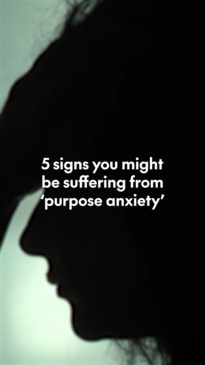Why ‘cyberchondria’ could make you sick, not safe
Close that laptop

Lifestyle
Don't miss out on the headlines from Lifestyle. Followed categories will be added to My News.
We’re all guilty of Googling our symptoms. But constantly worrying about them can actually make you sick.
We all turn to Dr Google every now and then to check if our symptoms align with the diagnosis we’ve decided on in our heads.
While the search engine can help us get a deeper understanding of illnesses our doctor has diagnosed us with, researching our symptoms can be a slippery slope to convincing ourselves our headache has the potential to be something as serious as a tumour.

Women’s health has historically been an under-researched area and as a result, misunderstood, so many are still regularly underdiagnosed or not taken seriously by health practitioners.
There are countless stories of women with endometriosis being told they have a gluten intolerance, IBS, regular period pain, or that their symptoms were entirely mental.
Women presenting with symptoms of heart disease are twice as likely to be told their symptoms are due to mental illness, compared to men who have the same symptoms, according to a US study.
You’re unlikely to meet a woman who hasn’t had someone suggest symptoms she’s experiencing are “all in her head”, and if you’ve been to appointment after appointment with GPs and specialists and none are able to determine the cause of your symptoms, it’s easy to understand why many women develop health anxiety.

People struggling with health anxiety already fear that they’ll get sick or that they’re already sick, so learning about a multitude of sicknesses that they could possibly have can exacerbate these fears.
According to a 2018 study, one in 20 Australians experiences health anxiety, and people who have experienced a trauma like a previous illness are five times more likely to develop the condition.
For people with health anxiety, researching symptoms can be a recipe for disaster.
While you may think your independent research into your symptoms can only make you more educated, or help you to explain your symptoms to a GP, Googling symptoms can be bad for both your mental and physical health.

Researching your symptoms can actually make you sicker
Stress doesn’t just wreak havoc on our minds, it also shows up in our bodies.
Feeling the need to continually check for symptoms and thinking about them all the time can be extremely stressful, and extended periods of heightened stress can bring on a plethora of uncomfortable symptoms including headaches, tension, sore eyes, fatigue, muscle pain, dizziness, indigestion and heartburn, as well as ulcers and rashes.
GP Dr Michela Sorensen adds stress is also linked to "increased rates of cardiovascular disease, digestive issues and poorer immune system."
Professor of clinical psychology at the Black Dog Institute, Jill Newby said "People often stigmatise this condition", but they “don't realise how distressing these anxieties are for the person."
"It's joked about, but that can be really debilitating for people who've got that anxiety", she told the ABC.
She says the need to research symptoms can become a compulsive behaviour for some people, which often requires support.
If you feel like you obsess over your health and worrying about your symptoms is starting to impact your life, it’s always a good idea to speak to a GP or psychologist about your concerns.
More Coverage
Originally published as Why ‘cyberchondria’ could make you sick, not safe





